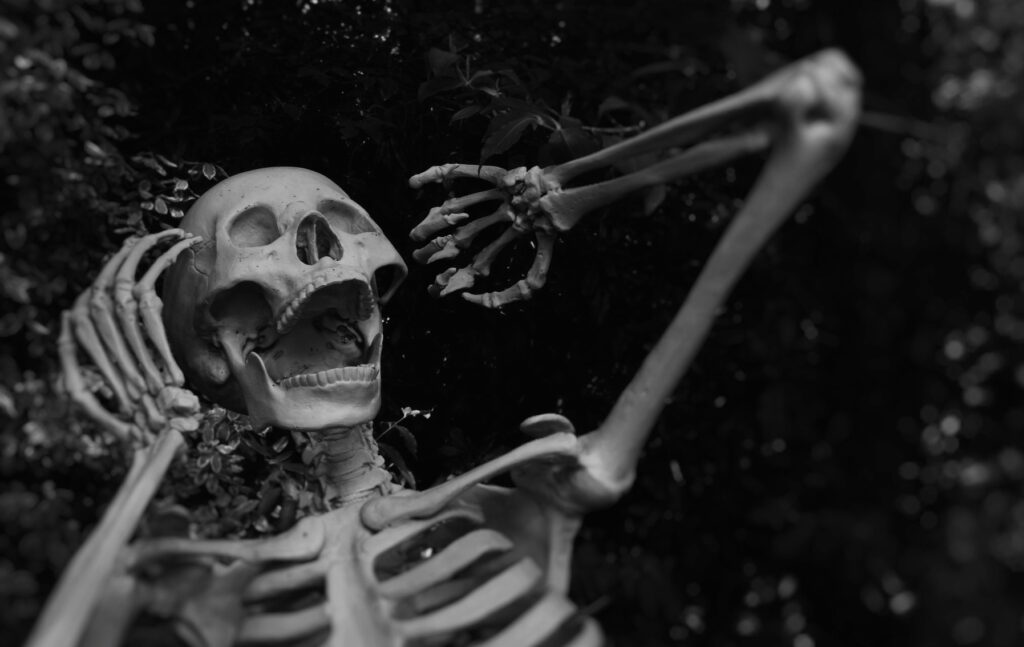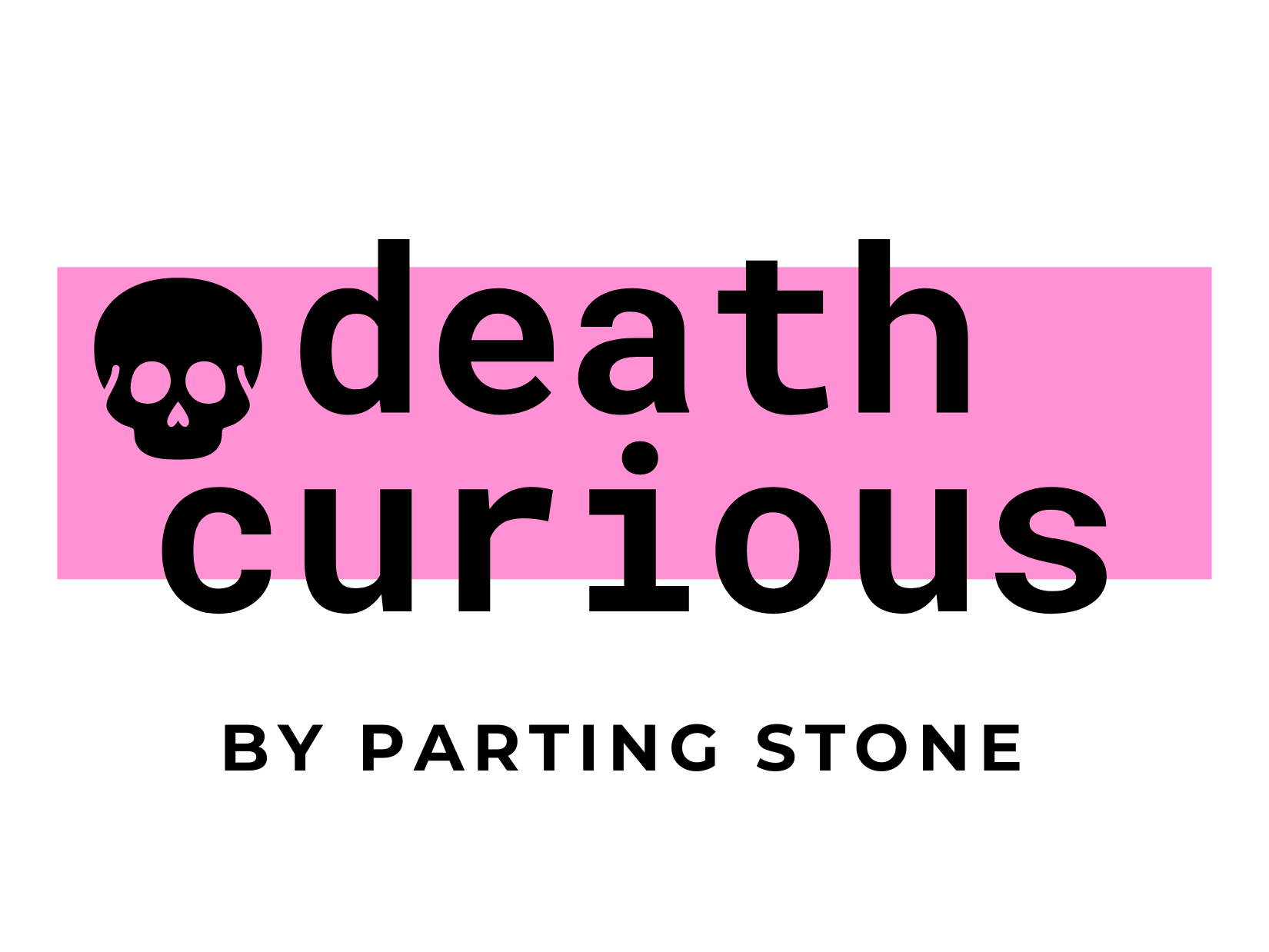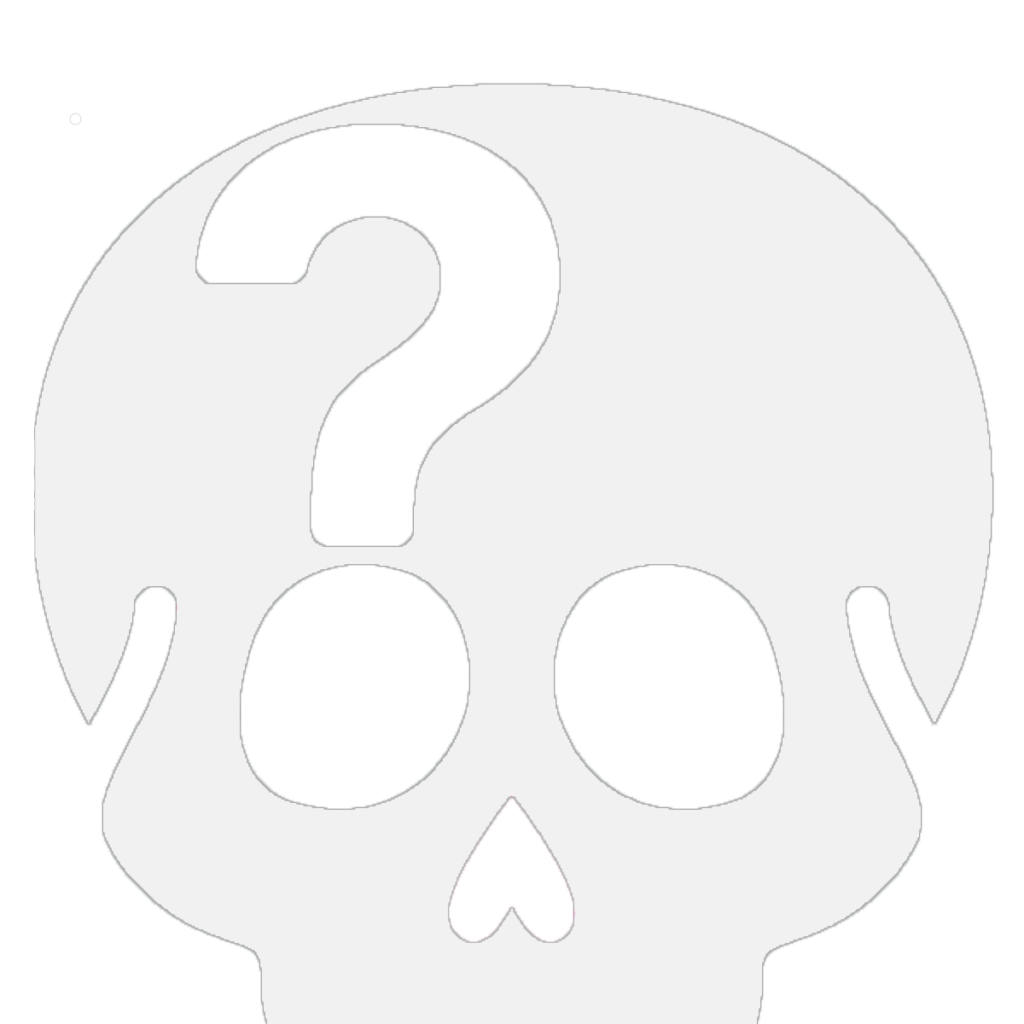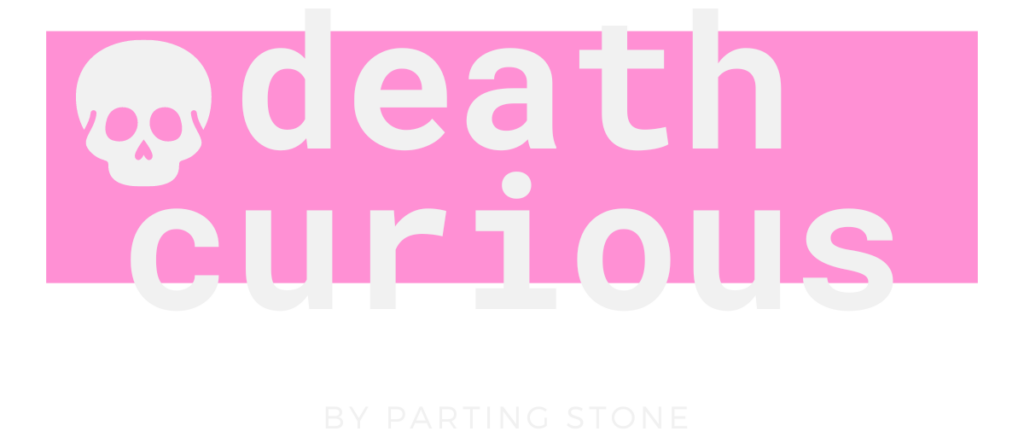Around mid-September my Hulu and Netflix menu screens, my TikTok feed, and my Instagram “discover” page all began filling with content about Halloween. Across subcultures and generations, “spooky season” is a highly anticipated time of year. The entire month of October allows many people to publicly display a fascination with the morbid through enjoying horror movies, decorations, costumes and more. However, it is curious to me that, for a society that has a hard time having healthy conversations about death and grief, we seem to have no problem getting excited about Halloween.
As I’ve deepened my work in death care and education, it’s become very apparent that, when a real death happens, many people don’t know how to healthily process their own grief, support others in theirs, or face the fact of our mortality in a healthy way. We feel uncomfortable talking about funeral plans or thinking in pragmatic ways about our own deaths or the inevitable deaths of our loved ones. However, every fall we love to dress up as corpses, monsters, killers, and demons for Halloween parties. We obsess over horror movies depicting over-the-top violence, and seek out thrills and fear-inducing entertainment, leaning into all the horror that is wrapped up in being mortal.
Perhaps the paradigm of our cultural obsession with Halloween can be linked to our wider societal death avoidance, and thus our growing need for connection to human mortality. Halloween might be so appealing to us–especially younger generations– because it offers an approachable way to process fear around death and dying. This means that getting death curious about Halloween could have positive repercussions for our society’s tenuous relationship with death.
Halloween Origins and Why We Celebrate Death
Halloween comes from a pagan/Celtic/Wiccan festival called Samhain (pronounced “Sah-win”) which was a celebration to welcome the harvest at the end of summer, when people would light bonfires and wear costumes to ward off ghosts. Since Samhain signaled the beginning of winter, which was a season associated with death for these cultures. We’ve probably all heard the saying that October 31st is a day when “the veil is thin,” which refers to the belief that the veil separating the worlds of the living and the dead is thinnest on October 31st. Many modern Halloween rituals like wearing costumes, carving jack-o-lanterns, and even trick-or-treating are based on old Samhain festival rituals and have to do with acknowledging human ephemerality, cycles of life and death, and imagining the afterlife and those who have already traversed there.
Holidays and festivals celebrating death have existed throughout human history and have been an important way for humans to cope with our mortality. The hispanic holiday “Day of the Dead” is an excellent example of this. According to Towson University, “Celebrating Day of the Dead means facing the fact that death is real and that although our loved ones are no longer with us, we can remember them and are happy that their spirits have returned to be with us during the holiday.” Samhain, and now our contemporary celebration of Halloween, has similar themes. Rituals and holidays celebrating death can help us deal with our fear of dying, grief around the loss of loved ones, and come to terms with the cycle of life as we move through it.
But Why Do We LOVE Halloween?
According to consumer reports, Halloween falls second only to Christmas in holiday celebrating and spending. One survey from Statista revealed that 73% of Americans plan to celebrate Halloween, or participate in Halloween activities in 2023, with interest being the highest among millennials and gen z.
However, my time as a death care professional has made it very clear that America is generally a “death-denying” or “death avoidant” culture. A Brighton Hospice article explains that “In general, we do not like to think about, talk about, or acknowledge death as an inevitable reality. While logically we understand that we will all die someday, it is generally a topic that is uncomfortable, and swept under the rug.” For the most part in our day-to-day lives, death has been distanced and sanitized by contemporary death practices. Death has become a mystery, entering the territory of the unknown, and thus, the scary and the taboo…the very stuff of Halloween. Many people today experience death anxiety, and don’t know how to healthily confront the fact of their own mortality, or that of their loved ones. This has led to a crisis of death avoidance or, a resistance to talking about death in order to avoid death anxiety, in America.
When we deny ourselves healthy thoughts and dialogue around hard topics, we look for any acceptable way to connect with the things we feel are taboo to think about. Halloween is the one time of year when it’s socially acceptable to talk about, celebrate, and explore death and dying. Since our culture doesn’t participate in healthy conversations about death most of the time, this holiday becomes an important (and sometimes extreme) outlet for our curiosities, fears, and explorations of death. For many people, it feels good to have a socially acceptable way to celebrate death and connect with others through exploring it.
Can Halloween Be Healthy for Us?
The good news is that finding ways to come to terms with human mortality– like leaning into the Halloween spirit each year– could actually have positive mental health and emotional benefits. As I have pointed out in previous places on the Death Curious website, having a healthy relationship with our mortality can actually lead to a happier, more fulfilled life.
A study from Science Daily revealed that, “Thinking about death can actually be a good thing. An awareness of mortality can improve physical health and help us re-prioritize our goals and values[…]. In constructing a new model for how we think about our own mortality, Vail and colleagues performed an extensive review of recent studies on the topic. They found numerous examples of experiments both in the lab and field that suggest a positive side to natural reminders about mortality.” This research found that normalizing thinking about and talking about death in our daily lives can lead to a higher inclination to help others, making choices that are better for the environment, and living healthier lifestyles.
Gen-Z’s Death Curious Halloween Spirit
When looking at Halloween’s ability to help us healthily come to terms with our mortality, the statistics correlating gen-z’s enthusiasm for Halloween become even more revealing when compared to the fact that gen-z is also the generation most likely to pre-plan for their funeral at a young age. According to surveys by Mirror in the UK, “30.2 percent of 16-24-year-olds say they have a [funeral] plan, which is almost double the amount of people within the age bracket of 45-52 at 17.7 percent. In fact, those between the ages 45 and 52 were the least likely to have considered funeral arrangements.” These two statistics point to a possible correlation between enjoying and celebrating Halloween, and lessened negative effects from death avoidance.
Many researchers and surveys also reveal that younger generations’ more mature relationship to death could be related to going through a global pandemic during which alarming conversations about death were everywhere. An article from Talk Death suggests that, while Gen Z is most comfortable discussing death over-all, that generation is more inclined to morbid humor, and using humor as a way to cope with their still-existent fears about death. For example, what other generation routinely uses the skull emoji to communicate laughter?
An article from Vice, claiming that Gen Z has a more mature approach to death than other generations, also credits a willingness to discuss and plan for death among both the Gen Z and Millennial generations to being young during Covid-19: “Gen Z respondents were four times more likely than Boomers to plan ahead and make a bucket list, despite having time on their side. They were also found to be three times more likely to talk to their friends about death, and over four times more likely to speak to their families. The survey found that millennials are the most likely to have become more scared of dying since the beginning of the pandemic. This cohort is also the most likely to have made financial plans, and were found to be significantly more likely to talk to their kids about death than older parents.”
This information could create a “chicken-egg” conundrum, in which it isn’t totally clear whether younger generations love Halloween because they experience less death anxiety, or if these generations experience less death anxiety because they are so enthusiastic about Halloween. However, the psychology behind why certain people love horror movies could help us better understand the relationship between these two generational characteristics.
Halloween and the Rise of Modern Horror

Halloween often means tuning into horror movies and television shows, and horror is one of the most quickly growing movie genres since the pandemic. An article from Far Out Magazine reveals that, “According to some statistics, in 2000, only 200 horror films were released. However, in 2016, the figure stood at over 1000, meaning the horror genre now constitutes more than 10% of all feature films.”
Interest in horror movies significantly increased during the pandemic, going hand in hand with the rising cultural interest in celebrating the Halloween season since then. An article from Nautilus reveals that “2020 saw the horror genre take home its largest share of the box office in modern history.” The article also reveals that, surprisingly, in times when anxiety is highest, people tend to gravitate towards anxiety-inducing horror films:
“Horror can provide this sense of control by shifting the source of your anxiety. Once a fictional world of horror has your attention and you escape into the narrative, the source of your anxiety changes. Instead of feeling anxious about a social interaction that went awry, looming deadlines, or any other number of anxiety-inducing events in the real world, your anxiety is now attached to the monster on the screen. Importantly, you are now choosing to feel anxious rather than anxiety being something that just happens to you outside of your control.”
These facts could also correlate to a post-pandemic world in which younger generations are confronted with topics of death and dying more often. If millennials and gen z people have higher levels of anxiety around death, watching horror movies and celebrating Halloween could both help foster that sense of control. This would ease some of our death-related anxieties, with the added benefit of helping people cope with the reality of our mortality in healthier and healthier ways. Basically, it appears that the way gen z and millennials are coping with their anxieties around death is creating a positive feedback loop– watching more horror movies and getting excited about Halloween is a symptom of death anxiety, which actually helps alleviate that anxiety and prevents chronic generational death avoidance– as opposed to past generations who have simply leaned into death avoidance and created taboo around the subject of death.
A Death Curious Guide to Starting Healthy Conversations About Death
While celebrating Halloween and enjoying horror movies is a great start, the key to truly dismantling death avoidance in our culture is helping people have better, more frequent, real, and honest conversations about death. More accessible and more abundant death education is an important part of truly coping with the natural fears and anxieties we feel when contemplating our mortality. If we are already seeing rising interests in horror movies and Halloween lead to earlier death planning, and more ease in conversing about death in younger generations, imagine what more frequent Death Cafe’s, community grief circles in schools and public spaces, and widely-available resources for helping ourselves and loved ones talk about death in healthier ways could do for future generations.
If you are ready to have a death curious Halloween and channel your love of spooky season into learning more about how to have better conversations about death, dying, and grief all the time, download our free ebook “How to Get Death Curious.” The ebook offers pointers and tips for starting hard conversations about death with those we love, including accessible ways to start thinking about death and funeral planning, and communication tools for having challenging conversations.



